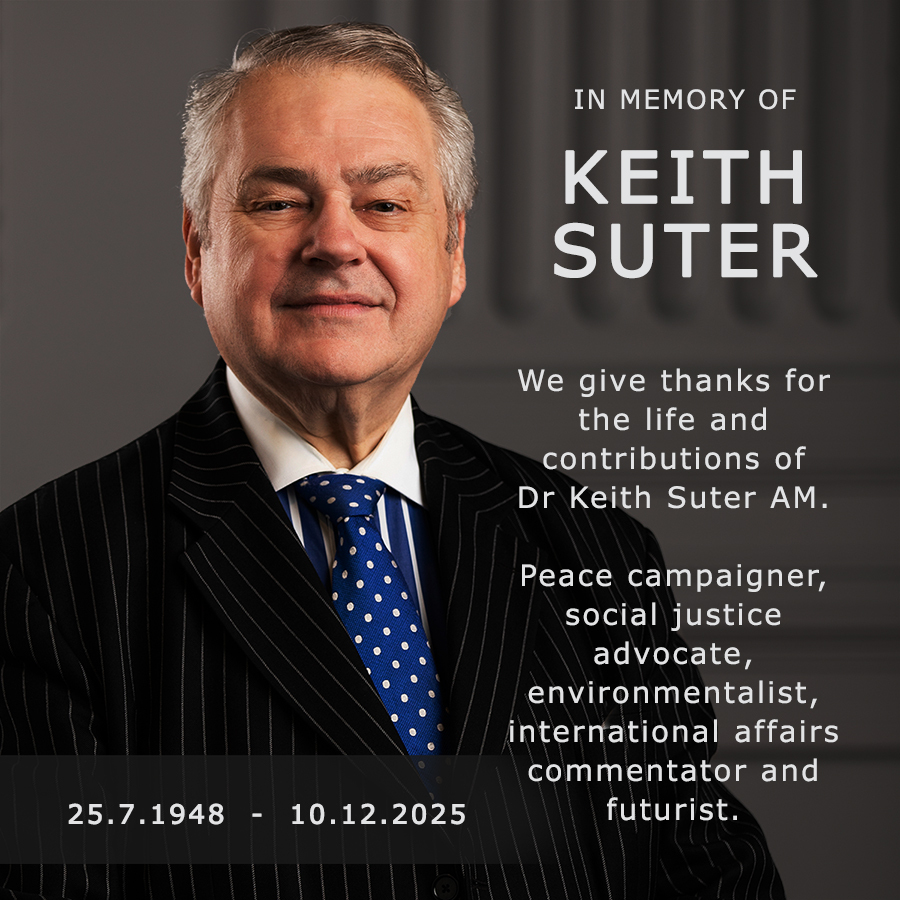
Archive Article: The Need For Trust In International Politics. 10 Jan 03.
December 27, 2008
We have moved from an age of innocence to an age of anxiety. Innocence ends when an awareness of danger in a situation arises. Thus, the era of terrorism has ended our sense of innocence.
Professor James O’Connell spoke at last year’s British United Nations Association Annual Conference on “From Innocence to Anxiety: Order and Disorder in a Global Age”. Professor O’Connell is a Professor of Peace Studies at Bradford University, in northern England.
Professor O’Connell said that terrorism is the weapon of the weak. It is the lashing out of those who are invisible. But it does not prove effective in bringing about political change. It also tends to have a limited span because of the costs in sacrifice and the loss of support that grows with time and revulsion. The history of terrorism over the past century showed that the operations eventually wind down.
However, he also warned that the current era of terrorism has three factors that make the current era a little different from earlier ones. First, the current era contains more people willing to kill themselves in operations. Such people are much more difficult to deter because they are not scared about dying for their cause.
Second, the weapons that are now available are much more dangerous than in the past. Third, modern technology also an impact in the opportunity for faster travel and more widespread operations than (say) the Russian anarchist groups a century ago.
How can we respond? Professor O’Connell says that in international terms there have been three ways of responding. First, a country or group of countries can become so powerful that any form of competition is squashed.
Having just returned from London, I am reminded that Europe is littered with such once-powerful countries that bankrupted themselves in trying to maintain their military power. Britain and France are two recent examples. But it is worth recalling that Spain and Portugal were the super powers 500 years ago. But few outside those countries would guess that today – they seem to be far more interesting as tourist attractions. But then perhaps Britain and France are going that way as well?
Professor O’Connell says that a second approach is for the creation of a balance of power. Europe maintained a high degree of peace among its countries in the 19th century through the “balance of power”, with the countries in competing alliances. The problem arose in 1870, with the rise of a strong united Germany in the centre of Europe: it was too big to fit into the balancing system and this contributed to the two world wars.
Finally, Professor O’Connell suggests an international system based on trust. A modern society is based on a high degree of trust. For example, when I go to a barber I have trust that the person will cut my hair and not my throat. Drivers trust that other drivers will keep to their side of road. Although there are some road accidents, by and large that trust is honoured.
Professor O’Connell therefore suggests that we use the current crisis as an opportunity to build a world that contains better systems of governance, research for new materials and fresh sources of energy, and the creation of international fair trading regimes and worthwhile foreign aid projects. In the process, we may make a future of more stable peace, create deeper respect for human rights, and produce greater shared prosperity than history has hitherto known.
Broadcast Friday 10 January 2003 on Radio 2GB’s “Brian Wilshire Programme” at 9pm.

